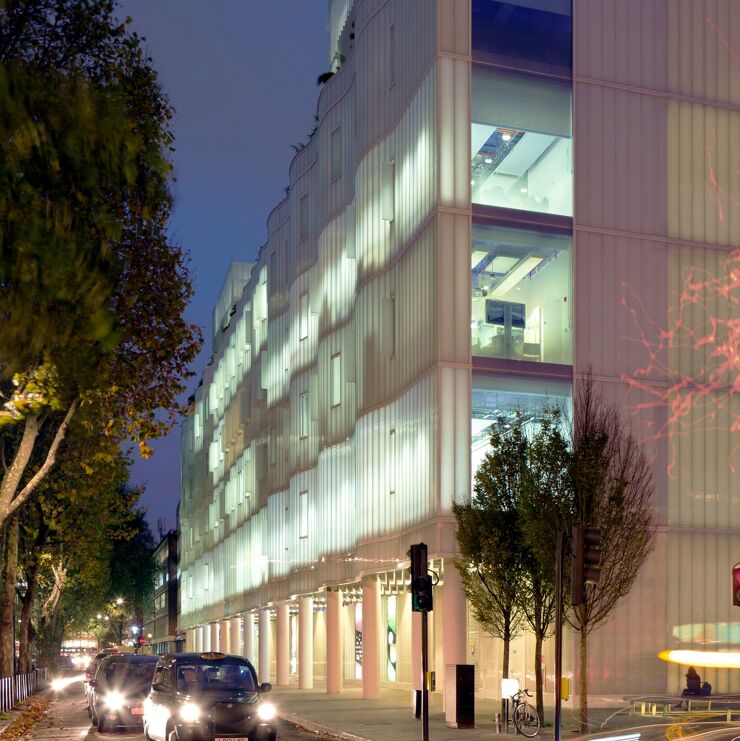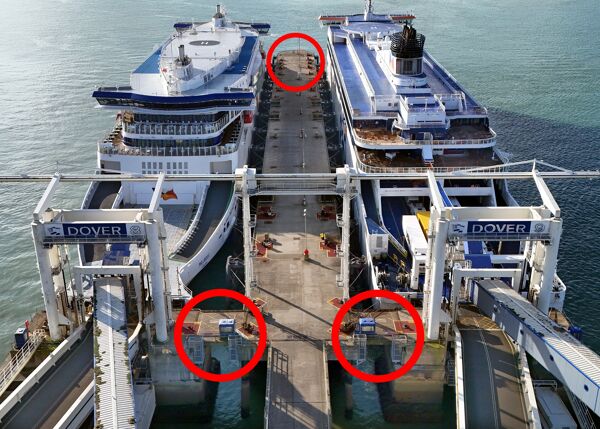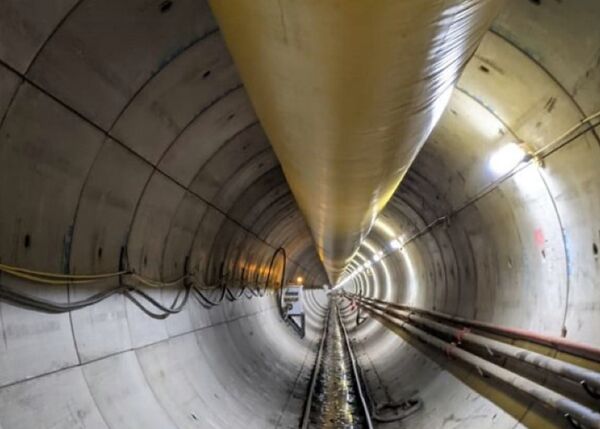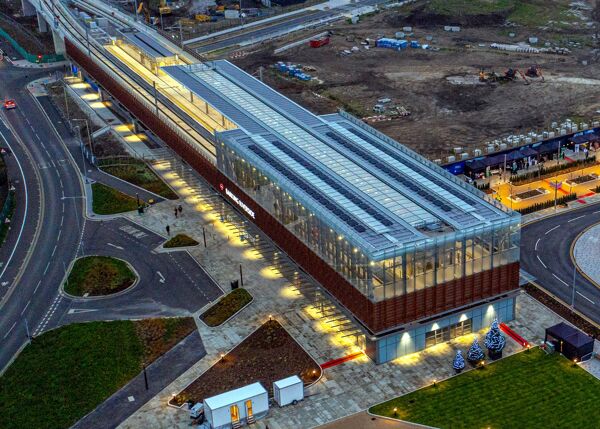
The Sainsbury Wellcome Centre for Neural Circuits and Behaviour at UCL is a remarkable new state-of-the-art systems neuroscience research facility in central London, UK. Completed in 2015 and operational since 2016, the £75 million NEC-procured facility was voted Major Building of the Year in the 2016 British Construction Industry Awards.
The 14,000 m2 centre includes 12 double-height, maisonette-style laboratories as well as special laboratories with independent air supply, social interaction spaces, flexible lecture and seminar facilities, a brasserie and roof gardens. The concrete-framed, glass-clad structure is supported on bored piles and a secant pile perimeter wall, helping to keep internal vibration to a minimum.
Building information modelling and off-site manufacture was used extensively in its design and construction, including the translucent full-height cast-glass facade modules and horizontal runs of the highly adaptable ‘plug and play’ building services. The building also features the first UK use of Aircuity air quality sensors, which dramatically reduce energy consumption and help to achieve a BREEAM excellent rating.
UCL Estates and funders Gatsby Charitable Foundation (established by David Sainsbury) and Wellcome appointed Kier Major Projects to build the centre under an NEC3 Engineering and Construction Contract (ECC) option A (priced contract with activity schedule). Demolition to an existing building commenced in July 2011. Construction Work started on site in May 2012 and was completed in July 2015. The project was delivered at £20,000 under the contract sum, and the fit out to experimental research laboratories was completed in April 2016.
Helping to reduce risk
NEC was chosen because the principal stakeholders already had a very positive experience of using the contract suite – not least on the £82 million 11,000 m2 Sainsbury Laboratory at Cambridge University, procured under ECC option A in 2011.As the funders’ strategic project manager Stuart Johnson says, ‘Identification, mitigation and transfer of risk was at the heart of the UCL project – and NEC facilitates this. It also fosters teamwork, encourages problem-solving, provides for honest evaluation of progress by all team members, and facilitates real-time cost evaluation of changes.’
Cost consultant Mark Cleverly of Arcadis says, ‘The employer wanted a contract that supported collaborative working and a mindset geared towards early reduction of major project risks. NEC fostered a culture of working to reduce risk, supported by regular risk reviews and early warning meetings linked to cost management and reporting.’
As Richard Bayfield of UCL Estates put it, ‘A contract is a tool for managing risk. The NEC delivers particularly well because it enables intelligent discussion around risk management involving all parties to the project.’
Facilitating innovative design
NEC project manager Eamonn Rogan of Peter Brett Associates says another reason for choosing NEC was to ensure delivery of a high quality, innovative design for the centre.‘NEC enabled early control of the design by the employer with the mechanism for novation to the contractor at an appropriate time when risk allocation had been agreed. It encouraged early collaboration and team review of all issues, thereby facilitating innovative and challenging design.
‘Overall NEC provided a mechanism for early client control on design with an alternative for the team to pass the design detail management to the contractor at a more developed stage. This meant the contractor could help prioritise design requirements.’
Controlling cost and programme
Rogan says NEC also helped to achieve cost certainty at an early stage, thereby enabling accurate cost forecasting. ‘Under NEC design changes were managed efficiently and quickly, and the contract mechanisms enabled cost and programme implications to be assessed before any action. Any defects during construction were also quickly identified and rectified before completion.Cleverly adds, ‘The NEC requirement to manage an accepted programme and activity schedule involved a little more upfront effort and time to set up, but ultimately gave the employer much more control and transparency over the value earned by the contractor and its supply chain. These features of the contract ultimately saved time later on and made reporting very clear and easy.'
‘In addition, there was very little difference between the contract price and the out-turn cost, so overall the upfront activity put the employer in a very secure and robust position commercially.’
The employer’s legal adviser Victoria Russell of Fenwick Elliott concludes, ‘NEC provided an ideal and very successful contractual framework on this project.’
Benefits of using NEC
- Delivered a world-class, state-of-the-art scientific research facility in central London on time and within budget.
- Enabled early de-risking of the project by supporting pre-planning and strong management, coupled with regular risk reviews and early warning meetings.
- Ensured delivery of a high quality, innovative design by providing early client control of the design before passing detail design to the contractor.
- Provided cost and programme certainty from an early stage, with all design changes managed efficiently and quickly and cost and programme implications assessed before action.
- Gave the employer control and transparency over the value earned by the contractor and its supply chain throughout the project.



